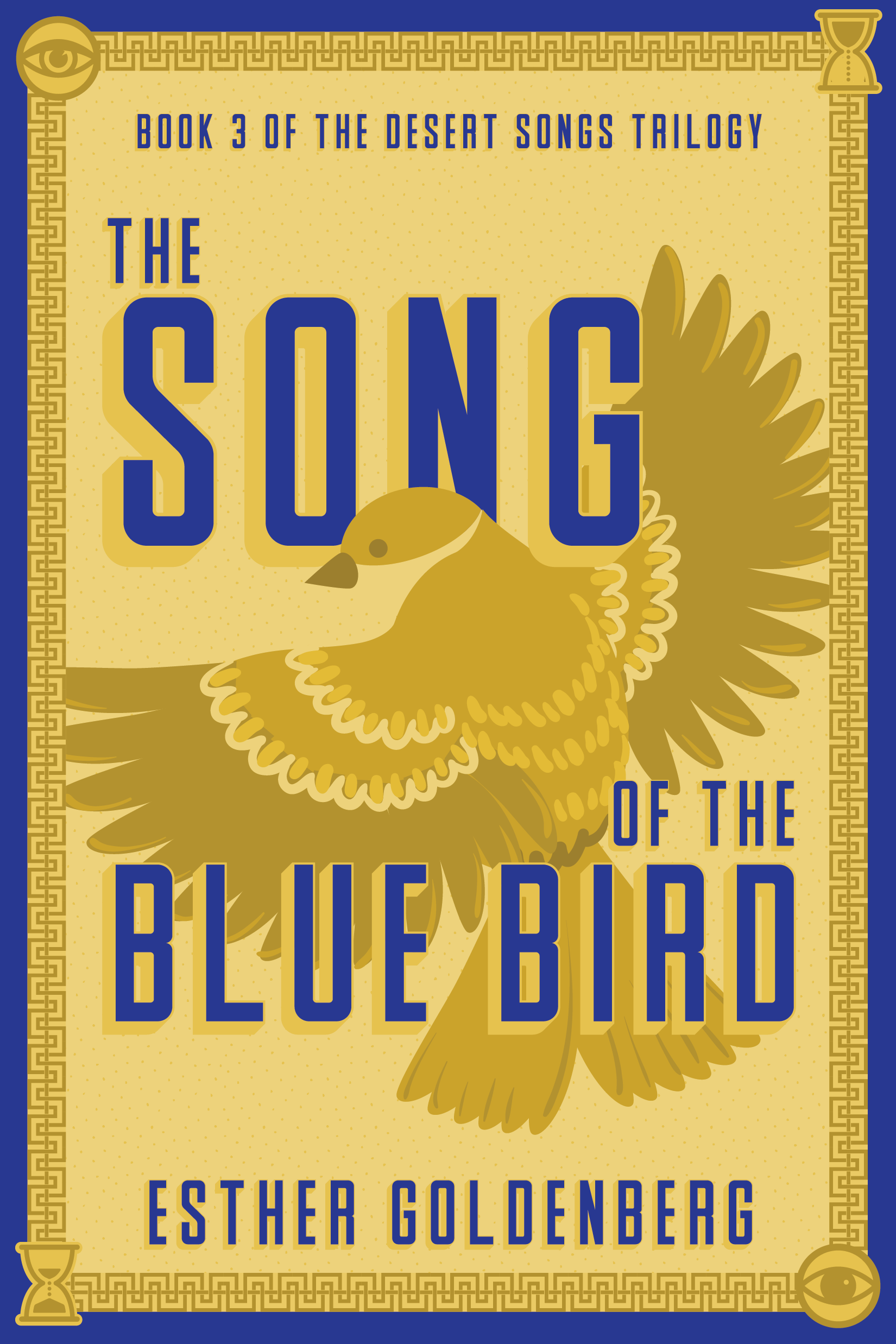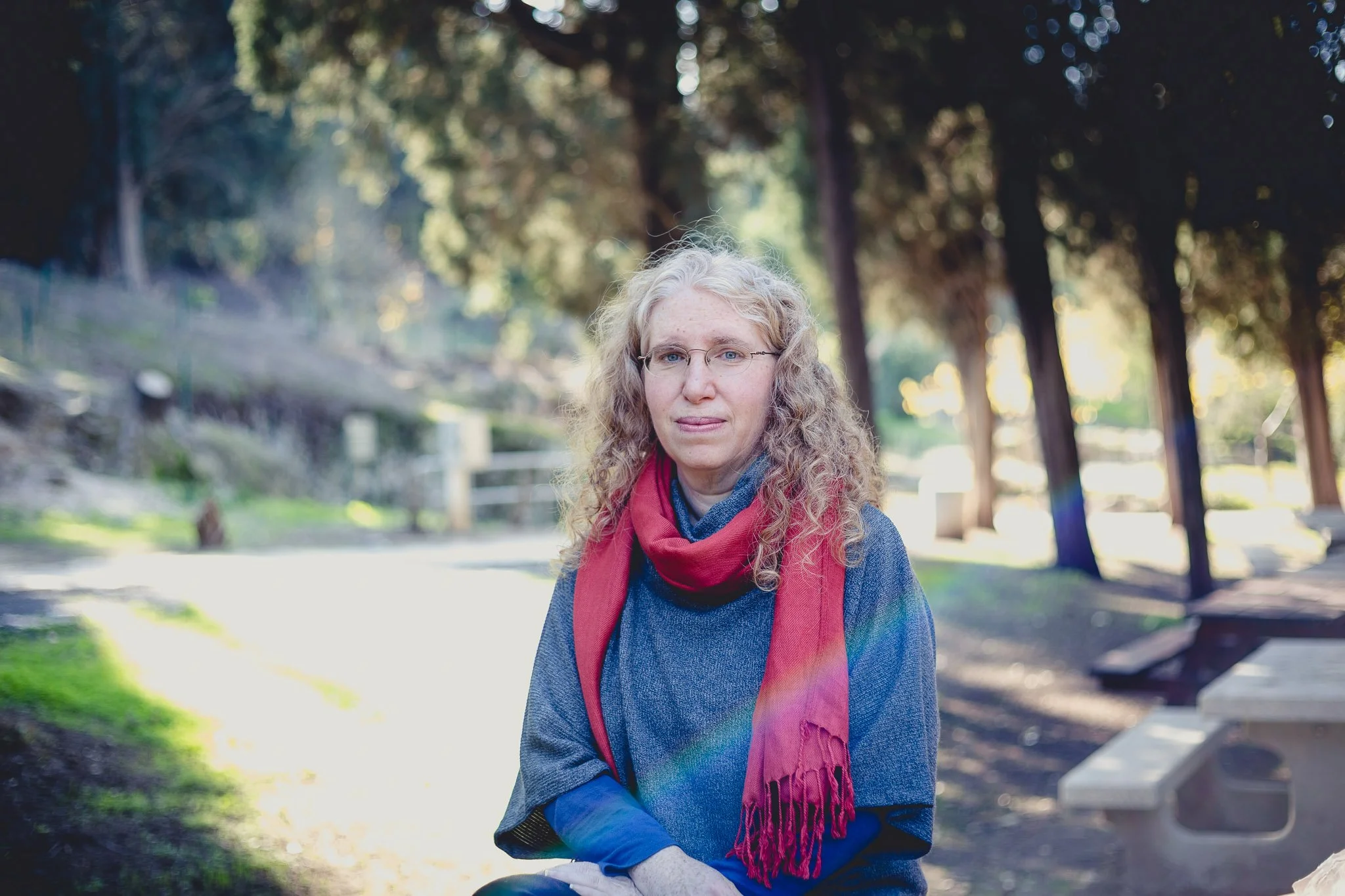
Author | Speaker | Educator
The Desert Songs Trilogy
Three books of Biblical fiction, each one as unique as its main character.
Book 1: The Scrolls of Deborah
Who was this woman who was important enough to receive one line in Genesis, yet was written about in only one line? Deborah, a wise woman from the tribe of Abraham and Sarah, Rebekah’s nursemaid, Auntie, a matriarch barely mentioned, tells her own story.
Book 2: Seventeen Spoons
Joseph, who we all think we know, shows us who he really was. Simultaneously favored and overlooked, his exceptional childhood laid the foundation for an exceptional destiny. How did Joseph the dreamer become Joseph who lived his dreams come true?
Book 3: The Song of the Blue Bird
Serrah, known in Exodus as the daughter of Asher and known in The Desert Songs Trilogy as Blue, was the only Israelite mentioned in the Torah as having gone down to Egypt and come out of Egypt. In her book — in her song — she shares not only what happened in between those two events, but also about before and after.
Book 1 of The Desert Songs Trilogy
by Esther Goldenberg
The Scrolls of Deborah
The Scrolls of Deborah immerses the reader in the daily life of an ancient world that feels both familiar and also utterly new. Stories of the "lost" or "hidden" women of the Torah take center stage as the characters grow through friendship, motherhood, love, loss, and joy. This is a beautiful book, an ode to sisterhood, and an invitation for the reader to reconsider often-told stories with a fresh eye.
Book 2 of The Desert Songs Trilogy
by Esther Goldenberg
Seventeen Spoons
"This novel finds new avenues for wonder in the biblical tale. Joseph’s tenderness centers it, and his relationships with women give it particular depth.... Joseph’s extraordinary empathy and penchant for kindness see the story through to its redemptive end." -- Foreword Reviews
Book 3 of The Desert Songs Trilogy
by Esther Goldenberg
The Song of the Blue Bird
Have you already read and loved The Scrolls of Deborah? Leave your own review here.
What readers are saying about
The Desert Songs Trilogy
The Scrolls of Deborah
Foreword Indie Gold Medal Winner
An unheralded descendant of Abraham honors the vibrant women of her tribe in The Scrolls of Deborah, Esther Goldenberg’s quiet triumph of biblical fiction.
“Everybody has a story to tell, a song to sing, a life that makes a difference,” Deborah tells Rebekah, the distant cousin she’s purchased as a nursemaid for. Deborah, raised in Egypt, has firsthand experience with the forgotten women of Abraham’s tribe—including Hallel, her grandmother, who lived a luxurious life in the pharaoh’s palace, and who taught her to worship Yah when they met under each full moon.
Rebekah is an eager student, more sister than master. With Deborah, she breathes in the name of God, stories of Sarah and the matriarchs, and tantalizing tales from distant lands: “I told her about the cats of Egypt and the red radishes and green lettuce and the sweet, juicy melons … at the market.” They grow together, traipsing desert fields and anointing each other with oil. They mark coming-of-age milestones with delight. And when Abraham sends an envoy seeking a wife for his son, they travel together to meet him.
While the novel acknowledges hard realities, including era misogyny, slavery, the Akedah, and sexual assault, it does so in an unobtrusive way; its focus is more celebratory. While Deborah—who taught herself to read over Jacob’s shoulder—charges gentle Joseph with writing her stories down, they already pulse through the women of her “quite … remarkable tribe” by virtue of her determined repetition. They dance each month in ceremonies evoking Rosh Chodesh; they bind their family together, uplifting kindness and righteousness. Through their eyes, new depth is revealed in the patriarchs, too: Abraham has regrets; divine light shines forth from Isaac.
In the exaltant biblical novel The Scrolls of Deborah, it is women of Abraham’s tribe who are the true storymakers.
Have you already read and loved Seventeen Spoons? Leave your own review here.
Seventeen Spoons
Jackie Pick, Book Reviewer says:
The biblical story of Joseph is a wild ride from favored son to Egyptian vizier. Betrayal! Prophetic dreams! A famine-induced family reunion! Ancient cattle herds! Naturally, one might expect a novel retelling of his life to be just as dramatic. But Esther Goldenberg takes a different approach, leaning into the slow, contemplative, deeply introspective side of Joseph’s journey. Anchored in the biblical text yet rendered with a dreamlike smoothness, it transforms familiar history into something immersive and intimate.
Goldenberg’s Joseph is both a golden child and an outsider, a man marked by divine destiny and semi-dysfunctional family dynamics. He’s naive in his youth, so much so that you want to shake him and say, “Please, for the love of God, read the room.” And that’s part of the charm: Goldenberg makes him endearing, even as he floats through life making choices that range from “wise beyond his years” to “spectacularly oblivious.”
The book’s pacing is a nod to the pace of life of that era. Long stretches of time unfold in spongey, atmospheric detail. Then, suddenly, decades pass in a sentence. Blink and Joseph has gone from “pensive teenager” to “deeply pensive middle-aged man.” The effect is a literary embodiment of how life rarely proceeds at a reasonable speed.
Goldenberg explores the themes of duty and expectation (and boy, how exhausting it must be to be perceived as special!) Joseph isn’t just a guy trying to make it in the world, he’s the guy, the chosen one, the standard-bearer. His interactions with Esau crack open some of the novel’s most poignant moments, highlighting the pain of being either too favored or not favored enough (a reminder that biblical families often struggled with “healthy communication”). Meanwhile, his relationships with his father, with Deena, with his brothers, and with Potiphar paint a picture of a man searching for connection, but never quite finding where he belongs.
And then there’s the longing. Goldenberg does not shy away from Joseph’s desire for love and companionship. His sexuality is explored, his divine destiny never presented as at odds with his human needs. It’s tastefully done, but if you prefer your biblical fiction without surprises in the romance department, just a heads up.
For readers of Goldenberg’s first book in the series, Deborah returns (!), linking the novel to broader conversations about patriarchal narratives and the role of women in biblical history. It’s a lovely reminder that while the focus may be on Joseph, the lives of the women around him are just as rich and complex.
Is Seventeen Spoons a pulse-pounding odyssey? No. But it is a thoughtful, deeply immersive novel that takes a legendary figure and turns him into a living, breathing, yearning human being. Goldenberg proves that biblical fiction can be an excavation of emotions, faith, and the ways we are shaped by the weight of expectation.
Have you already read and loved The Song of the Blue Bird? Leave your own review here.
The Song of the Blue Bird
Early praise for The Song of the Blue Bird:
Serrah, daughter of Asher, is merely a speck in the biblical account. Yet here she is, a fully drawn character, also known as Blue, the central wise root of Israelite tribal life for the centuries the Bible covers, and more. Blue quietly shines, with hard-earned honor and importance, vividly telling her account of what “really” happened, filling in much that is “missing” from Torah, from her mother’s experience growing up with Joseph to her arrival in Rabbi Yohanan’s house of learning during the Roman siege of Jerusalem in Second Temple times. We are given a panorama, and often close encounters, of the worlds of the women who cocreated, and continue to cocreate the growth and shape of our early Jewish becoming.
In Blue’s life-stories we meet again the loving relationships and often fierce individuality of our foremothers, that we encountered in the earlier books. Now, through an enormous span of time, and through Blue’s eyes, we see similar character traits appear in each generation. The novel gives a felt sense of love and caring, of creativity and bold willingness to embrace life wherever it takes us, that arises again and again through the generations, especially when children are cherished, in community, living in an embodied connection with the Divine, which is a continual source of calm, joy, clarity and renewal, however great the suffering and privation.
The Desert Songs Trilogy is deeply nourishing in a spiritually rich experience of a God that is not a Master but can be connected to through that same breath that breaths life into Adam in the Biblical account. The same breath often animates the many songs and dances of the women, songs that not only help people bear Life’s losses and pain, but also create community, pass on history, and strengthen our spirits.

Meet Esther
Esther Goldenberg is a sister, mother, daughter, and friend who loves gazing at the moon. No matter the night, it reminds her that everything is just a phase. In this phase of Esther’s life, she’s reminding herself to keep breathing, keep dreaming, and keep singing her song. Her work is inspired by her lifelong love of daydreaming and her short excursions into nature.






